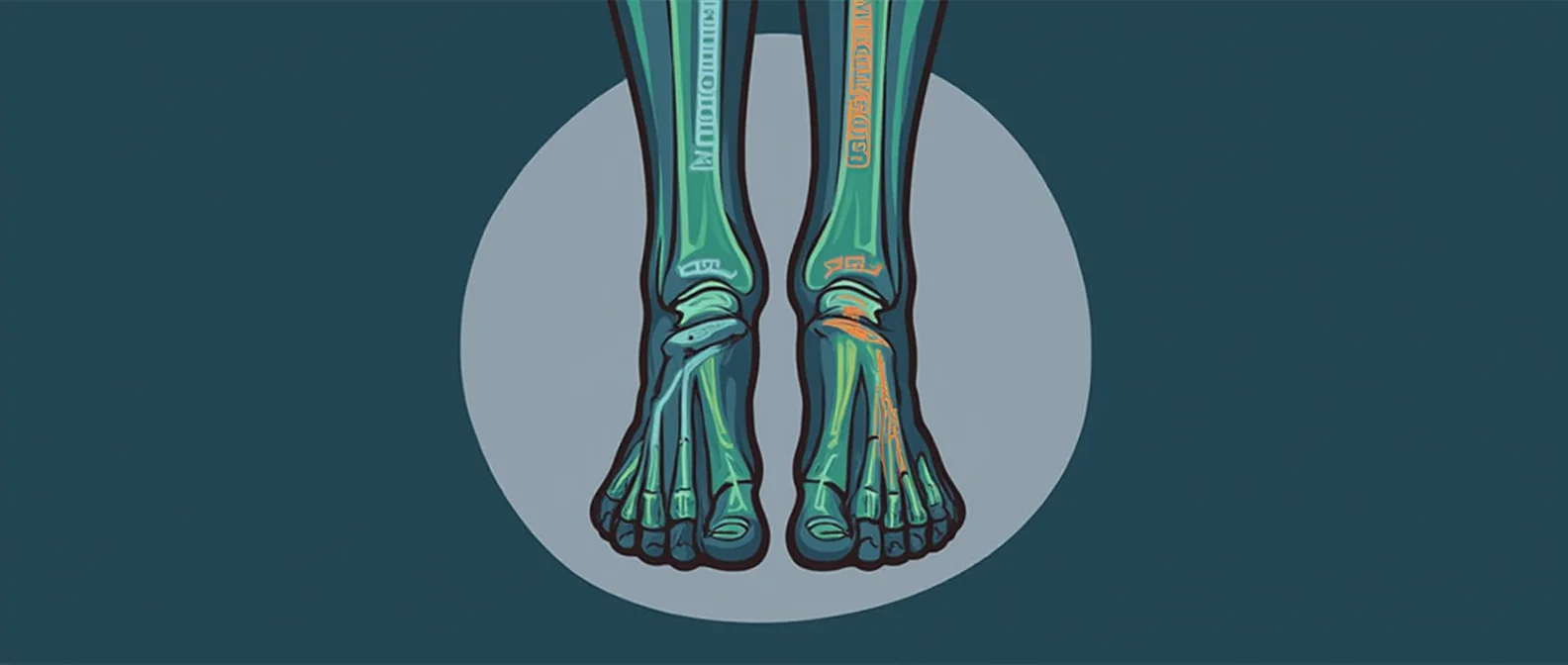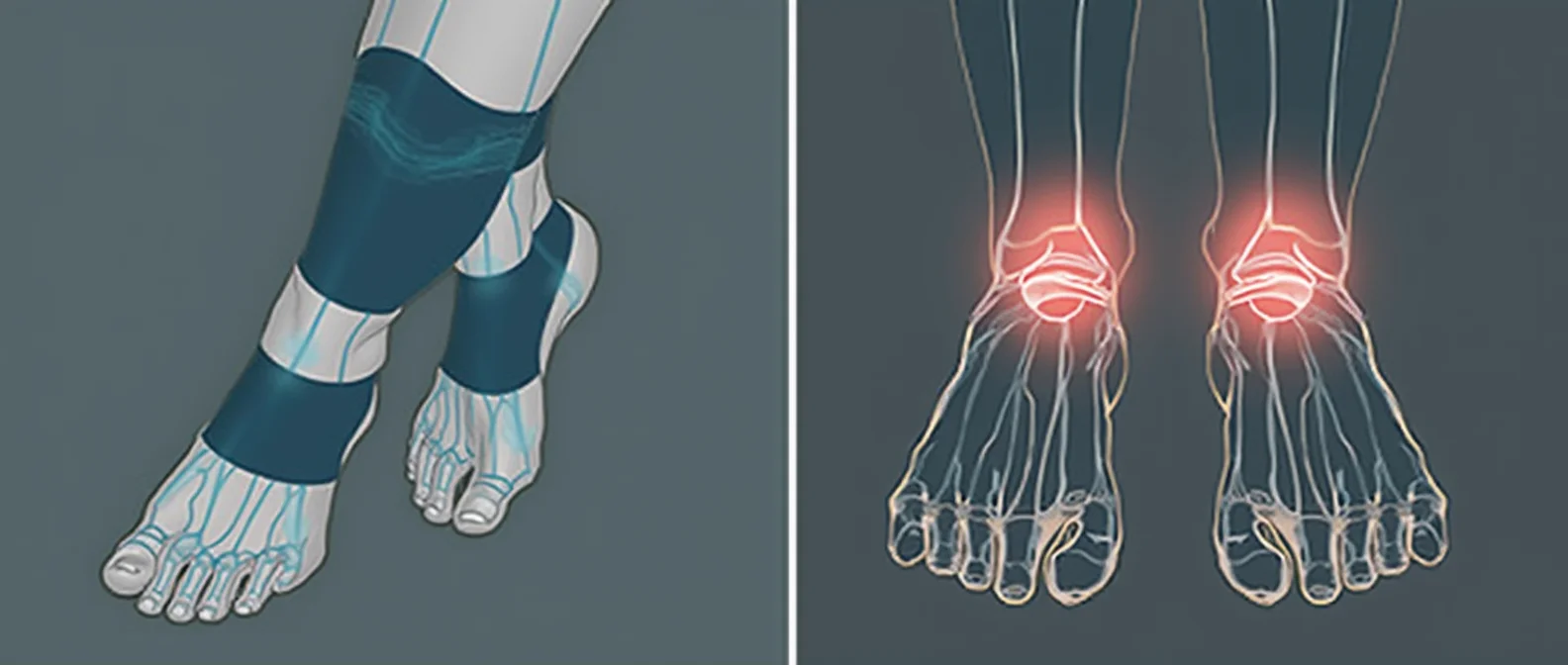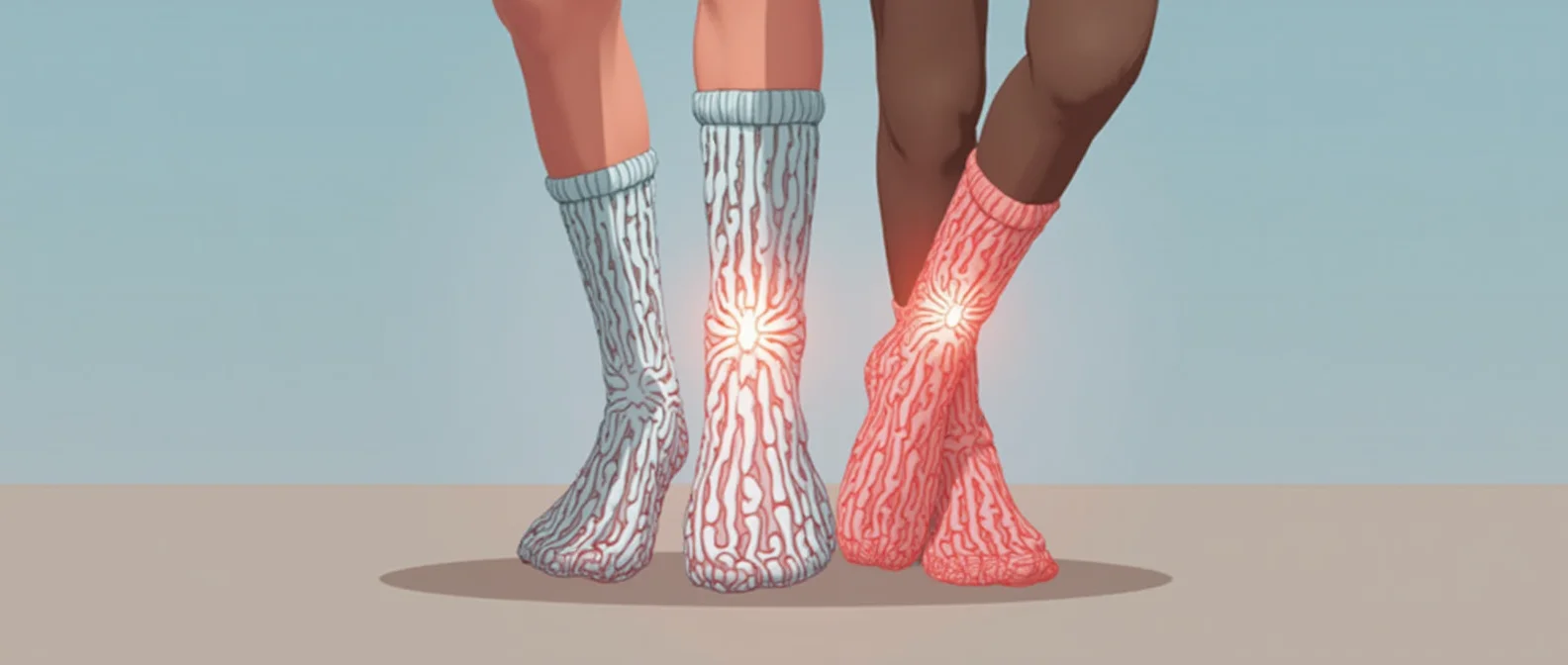Currently Empty: $0.00
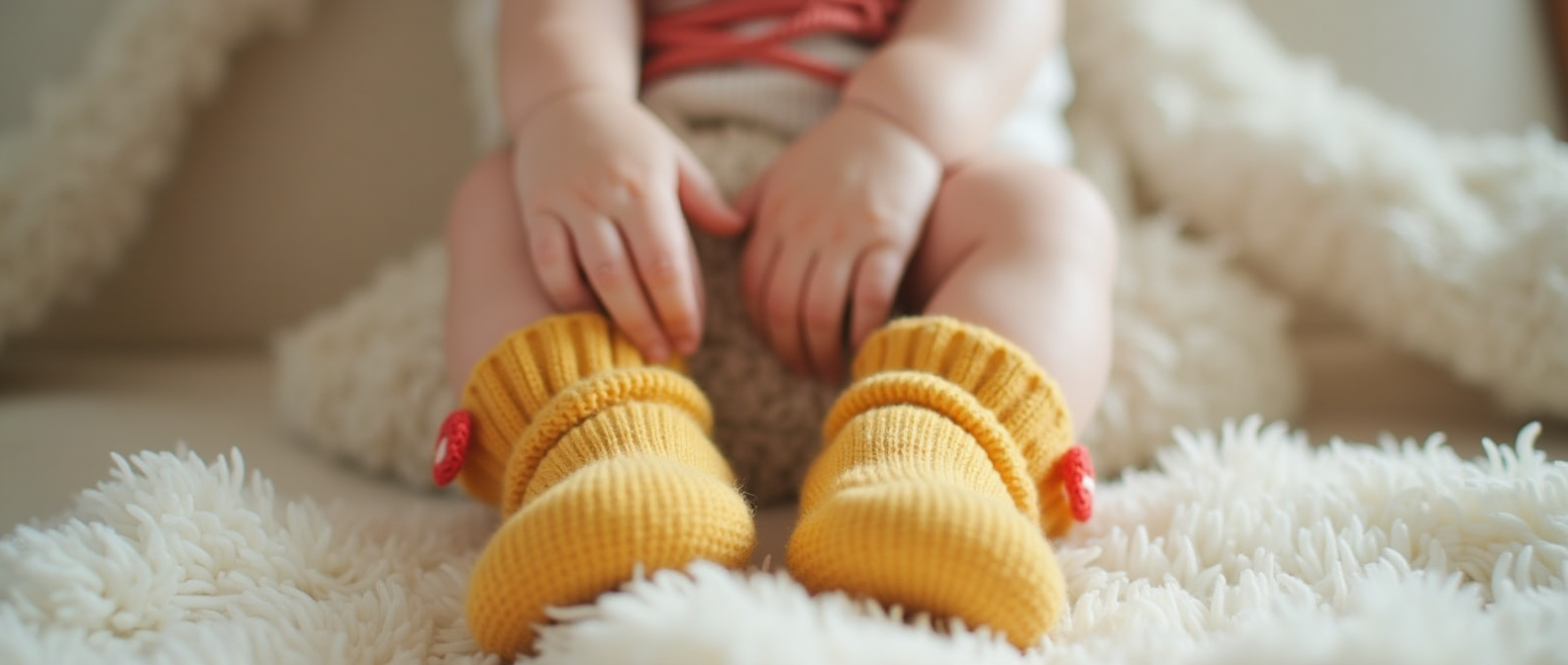
Did you know a baby’s feet can lose up to 10% of their body heat? This fact shows how crucial foot care is for infants. As parents, we want our babies’ feet to be warm and comfy. But do babies need socks? The answer might surprise you.
In this article, we’ll look at the benefits of baby socks. We’ll also share expert advice and tips to keep your baby’s feet cozy and safe. From learning about temperature control to picking the best materials, we’ve got everything you need to know.
Table of Contents
Understanding Baby Foot Temperature Regulation
Keeping a baby’s feet at the right temperature is key for their comfort and health. Babies’ feet help control their body heat. Knowing how this works helps parents take better care of their babies.
How Babies’ Feet Maintain Heat
Babies’ feet have special blood vessels to adjust to temperature changes. These vessels can get smaller or bigger to control blood flow and heat. When it’s cold, they get smaller to keep heat in. When it’s warm, they get bigger to let heat out.
Signs of Cold and Warm Feet in Infants
- Cold feet: If a baby’s feet feel cool, it might mean they’re losing too much heat. This could happen if it’s too cold or if they’re not wearing enough on their feet.
- Warm feet: If a baby’s feet feel warm or hot, it might mean they’re too warm. This could be because it’s too warm around them or because they’re wearing too much.
The Role of Circulation in Baby Feet
Good blood flow in the feet is important for keeping the right temperature. Babies’ feet have lots of blood vessels to spread heat around the body. Things like tight socks or bad positioning can mess with this flow.
Knowing how baby feet regulate temperature is the first step to keeping them comfortable. By watching for signs of cold or warm feet and making sure blood flows well, parents can help their babies stay happy and warm.
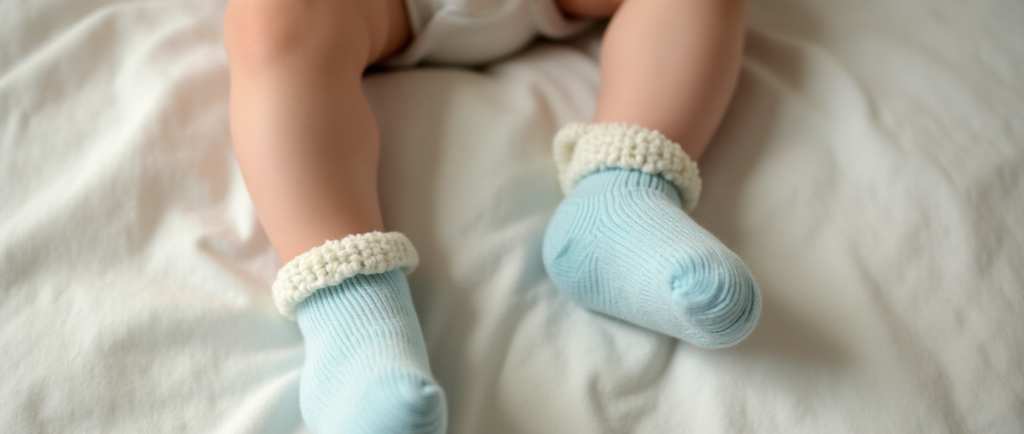
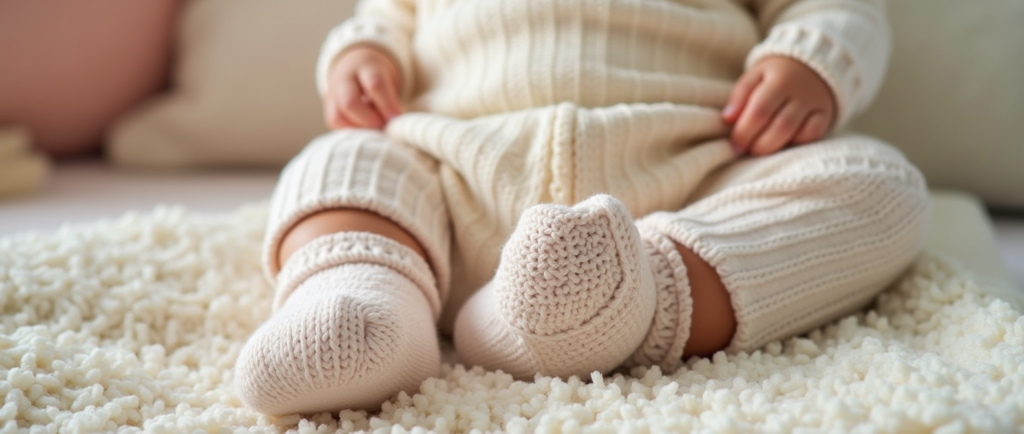
Do Babies Need Socks: Expert Recommendations
Keeping a baby’s feet warm is a common concern. Pediatric experts say it’s not always a simple yes or no. The baby’s age, the environment, and their comfort level matter.
Dr. Emma Thompson, a well-known pediatrician, shares her view. “Newborns and young babies often need socks for warmth and protection. Their bodies are still learning to regulate temperature. Socks help keep them warm, especially in cool or drafty places.” But, she warns, socks shouldn’t replace proper temperature control, like adjusting the room or the baby’s clothes.
Child development specialist Sarah Lively suggests baby booties as an alternative to newborn socks. “Booties fit snugly and allow for airflow and flexibility. This is great for babies starting to walk and explore.”
Experts say the need for do babies need socks depends on the baby and the environment. Following their advice helps keep a baby’s feet comfortable and safe as they grow.
Essential Benefits of Baby Socks for Infant Development
Baby socks are key to keeping your little one comfy and healthy. They protect delicate feet and help with early walking. These tiny accessories are vital for your infant’s well-being.
Protection Against Environmental Factors
Baby’s soft skin needs gentle care. Socks act as a shield against harsh elements. They keep tiny toes safe from sharp objects and extreme temperatures.
Support During Early Walking Stages
When your baby starts walking, infant socks are crucial. They provide traction and stability. This helps your child’s muscles and coordination as they learn to move.
Temperature Management Benefits
Keeping the right body temperature is important for your baby. Baby socks help with this. They prevent heat loss, keeping feet warm in cold and cool in warm places. This helps your baby sleep better and stay healthy.
Choosing the right baby boy socks is important. They offer protection, support, and temperature control. These small accessories help your little one explore the world with confidence and comfort.
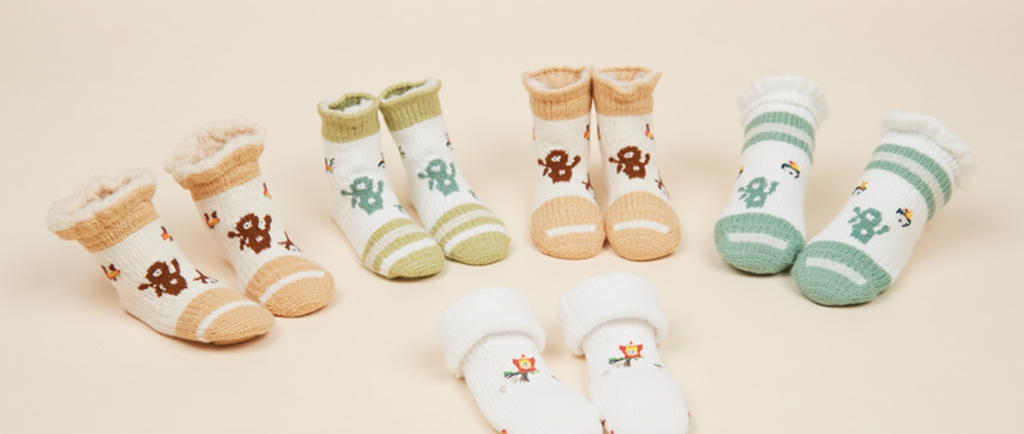
Choosing the Right Materials for Baby Socks
Choosing the right materials for your baby’s socks is important. It affects their comfort and growth. Let’s look at what makes the best baby socks materials for your little one.
Breathability and Moisture Wicking
Babies sweat more than adults, so socks need to breathe. Look for materials like cotton, bamboo, or merino wool. These keep feet dry and comfy by wicking away moisture.
Softness and Skin Sensitivity
Newborn skin is very delicate. So, it’s key to pick baby socks materials that are soft and gentle. Choose organic cotton or synthetic blends without harsh chemicals or dyes.
Durability and Longevity
As your baby grows, their socks need to keep up. Pick sturdy, well-made fabrics that last through many wearings.
By focusing on these factors, you can make sure your baby’s feet stay cozy and safe. This is important for their early growth and development.
Proper Sizing and Fit Guidelines for Baby Socks
Getting the right fit for baby socks is key for comfort and healthy foot growth. It’s important to pick socks that match your baby’s foot size. The right size prevents slipping and ensures proper circulation and flexibility as they grow.
To find the perfect sock size, measure your baby’s foot length. You can do this by tracing their foot on paper and comparing it to a size chart. For 12-24 month socks, look for sizes that fit foot lengths between 4.5 to 5.5 inches. Make sure the socks fit snugly but not too tight, as tight socks can cut off blood flow and be uncomfortable.
Don’t forget to consider the width of your baby’s foot and the shape of their ankle and leg. Socks that are too loose can slide down, while too tight ones can block circulation and limit movement. Choosing the right size and material keeps your baby’s feet comfortable and supported as they discover the world.
FAQ
Do babies need socks?
Yes, babies need socks to keep their feet warm and safe. Socks help control their body temperature. They also offer comfort and protection from cold and rough surfaces.
What are the benefits of baby socks?
Baby socks have many benefits. They help keep feet warm and comfortable. They also protect against cold and support early walking.
What materials are best for baby socks?
Choose soft, breathable fabrics for baby socks. Cotton, merino wool, and bamboo are good options. They keep feet comfortable and regulate temperature.
How do I ensure the right fit for baby socks?
Measuring your baby’s feet is key. Use size charts to find the perfect fit. Socks should be snug but not too tight for comfort and growth.
When should babies start wearing socks?
Newborns can wear socks, but watch their temperature. As they grow, socks become more important for foot protection and support.

